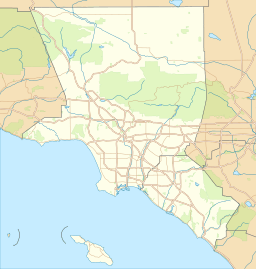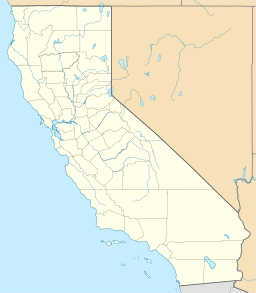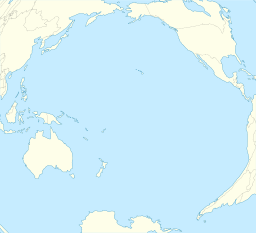Chevron Reef facts for kids
Quick facts for kids Chevron Reef |
|
|---|---|
| Location | |
| Location | Pacific Ocean |
| Coordinates | 33°54′54″N 118°25′57″W / 33.915123°N 118.432624°W |
| Country | United States |
| Geology | |
| Type | artificial reef |
Chevron Reef, also called Pratte's Reef, was a special underwater structure built by people. It was created in the year 2000 in Santa Monica Bay, near Dockweiler State Beach. This reef was designed to help create better waves for surfing. It was the very first artificial surfing reef in the United States and only the second one ever built in the world.
Contents
Where Was Chevron Reef?
The Chevron Reef was located in Santa Monica Bay, not far from the coast. It was about 100 yards (or 91 meters) away from the shore, in water that was about 15 feet (or 4.5 meters) deep. It was situated north of a long wall called the El Segundo jetty.
Why Was the Reef Built?
The Story Behind Pratte's Reef
The idea for Chevron Reef started in 1984. A company called Chevron wanted to build a long wall, called a jetty, near El Segundo, California. This jetty would protect their underwater pipes. However, a group called the Surfrider Foundation was worried. They thought the jetty might harm the ocean and make the waves worse for surfing.
The Surfrider Foundation worked with Chevron to reach an agreement. Chevron agreed to pay $300,000 to build an artificial surfing reef. This would only happen if it could be proven that their new jetty made the waves much smaller or less fun to surf.
Research and Planning
By 1994, research showed that the jetty was indeed affecting the waves. It took a few more years, but Chevron finally paid the money in 1999. Plans for the new reef then moved forward.
The reef was named Pratte's Reef to honor Thomas Pratte. He was one of the people who helped start the Surfrider Foundation. Thomas Pratte was very important in the fight against the Chevron jetty. Sadly, he passed away in 1994.
Building the Reef
In the fall of 2000, construction began. Workers dropped 110 large bags filled with sand into the water. These special bags, called geotextile bags, were used to create the artificial reef.
However, the first part of the reef didn't work as well as everyone hoped. The waves didn't break perfectly. So, in 2001, an extra $200,000 was given by the California Coastal Conservancy. This money helped add 90 more sand-filled bags to the reef.
How Well Did It Work?
Even with the extra bags, the reef wasn't quite big enough to make the best surfing waves. Chad Nelsen, who worked for the Surfrider Foundation, explained that when the waves got really big, they would break outside the reef area. This meant the reef couldn't shape them as intended.
Still, the project used as much sand as it possibly could with the money available. The Chevron Reef was eventually removed starting in 2008, as its building permit required.
 | Chris Smalls |
 | Fred Hampton |
 | Ralph Abernathy |




